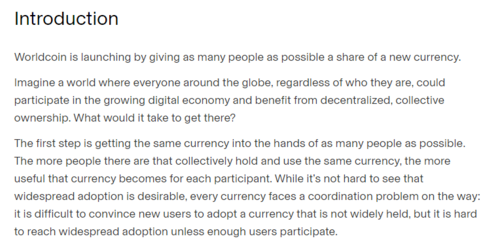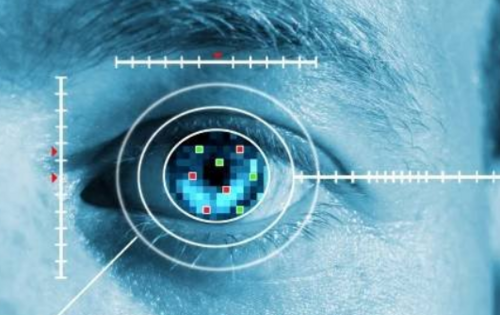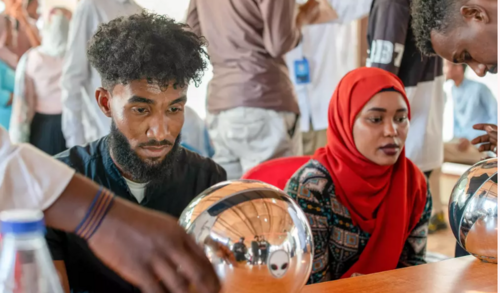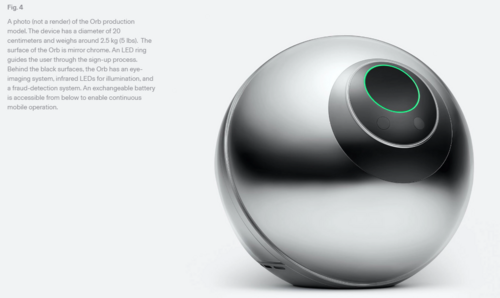

What is the real goal of worldcoin
- this title should be maybe followed by question mark

(This blog is about Worldcoin.org . There are other worldcoin sites founded longer time ago. Information is based first of all on a comment from Czech web)
From the worldcoin.org site:
AI & Biometrics
Building a biometric iris identification system that works reliably for billions of users by leveraging cutting-edge AI and breakthroughs in computer vision.
Introduction
Worldcoin is launching by giving as many people as possible a share of a new currency.
Imagine a world where everyone around the globe, regardless of who they are, could participate in the growing digital economy and benefit from decentralized, collective ownership. What would it take to get there?
Ensuring Human-Uniqueness At Scale: The Orb
Using iris recognition for a scalable Proof-of-Personhood requires an iris scanner that’s secure, high-resolution, and easy-to-use. We searched for existing devices that meet these requirements at a global scale, but found none. For this reason, Worldcoin developed the Orb.
"What have you done to my eye?" They promise a global revolution, but people suspect fraud.
A small company wants to take a billion iris pictures. Apparently, thanks to this, he will be able to launch the first fair cryptocurrency. But so far, their futuristic balls have angered people from all over the world, especially from poorer countries. What is the real goal?
How worldcoin wants to take over the world ?
If one day the worldcoin cryptocurrency manages to be put into operation, there should be a limited amount of it. The entire 80% is reserved for the inhabitants of the world, and each unique individual will be able to apply for his share using his iris. The remaining 20% of the coins would be shared equally by worldcoin and its investors. They hope that thanks to mass use, the total value of the currency would grow rapidly.
From the worldcoin.org

Hypothetically speaking, everyone should be able to claim their equal share. But this means that the platform must have the ability to recognize whether someone has come for their dose of worldcoins twice. Or a hundred times.
Usually it would be handled by some state database of citizens. But in the digital and decentralized world of cryptocurrencies, any reliance on state authorities is an unwelcome remnant of the old system. Visionaries from worldcoin therefore chose the "obvious path" - the uniqueness of the human eye.
Scanning is or has been conducted in 24 countries around the world. There are a few European representatives, but mostly the operators manage to scan the corneas of people from poorer countries like Sudan, Kenya, Chile, Indonesia, Nigeria or South Africa.
The scanned receive a $ 20 voucher for the provision of their irises. The problem is that this promise of future reward is to be paid in the worldcoin cryptocurrency, which does not yet exist. Altman's worldcoin should later be built on the Ethereum layer 2 blockchain technology. There are also at least two other cryptocurrencies of the same name, which does not help clarity.
Outwardly, operators lure thousands of people from remote areas of poor countries of the world under the promise of " giving away money for free." But in fact, people only receive a voucher for a cryptocurrency that does not yet exist and may never exist. Worldcoin itself indirectly admits this: "nothing like this has ever happened before. The outcome is uncertain.“
But doubts about the worldcoin project go much deeper. The whole vision is technically based on the theoretical possibility of safe identification of a particular person using the iris of the eye. Whether it will succeed, no one knows.

The imprint here is thought to be a special mathematical notation, which worldcoin calls irishash. In essence, this is a specific hash function, which should create from the recorded image of the iris of the eye a code that has two important properties: it is repeatedly verifiable and retroactively indecipherable.
So far, however, worldcoin does not know how to do any irishash, and thus stores absolutely all the data that it takes. "During the field testing phase, we collect and securely store more data than we would in normal operation," worldcoin states on its blog. "Once our algorithms are fully trained, we will remove all biometric data that we collected during field testing.“ Worldcoin scanning in Sudan
Worldcoin scanning in Sudan
Which is obviously another reason why the operators went to take pictures of the iris of the eye as far as Sudan or Indonesia. Data protection laws are quite strict in the US and especially in Europe, but in the "third world" countries there are usually no legislative obstacles. "Simply put, it is cheaper and easier to operate this kind of data collection in places where people have little money and little legal protection," notes Technology Review.
Companies collect data from people in countries where their collection is not regulated, and use the collected data to train their neural networks.
Even so, worldcoin has already stumbled several times. For example, they had to interrupt data collection in Zimbabwe or Ghana, where foreign processing of biometric data is illegal. In other countries-including several European ones-worldcoin temporarily suspended scanning.
It is not yet clear what worldcoin will ultimately do with the collected data. It could be nothing at all. Perhaps they will find that their idea of reliably recognizing every person in the world using a digitally stored eye print is simply not realistic. Perhaps the images are poorly detailed, perhaps simply the human iris changes more during life than is desirable for verification.
But we definitely wouldn't recommend getting scanned by their balls. While you would give them potentially very sensitive data, they would give you a piece of paper with the promise of a future twenty dollars.
Here other webs commenting this project:
https://fortune.com/2021/10/22/crypto-worldcoin-cryptocurrency-eye-scan-biometrics-orb/
Detailed article on the minuses of the scanning and risks
https://slate.com/technology/2021/07/worldcoin-scan-eyeball-iris-cryptocurrency.html

It sounds like something out of a sci-fi movie — metallic orbs that scan people’s eyes to pay them in digital currency.
The more wonderful or even unbelievable it sounds the more should people be careful
Margaret
